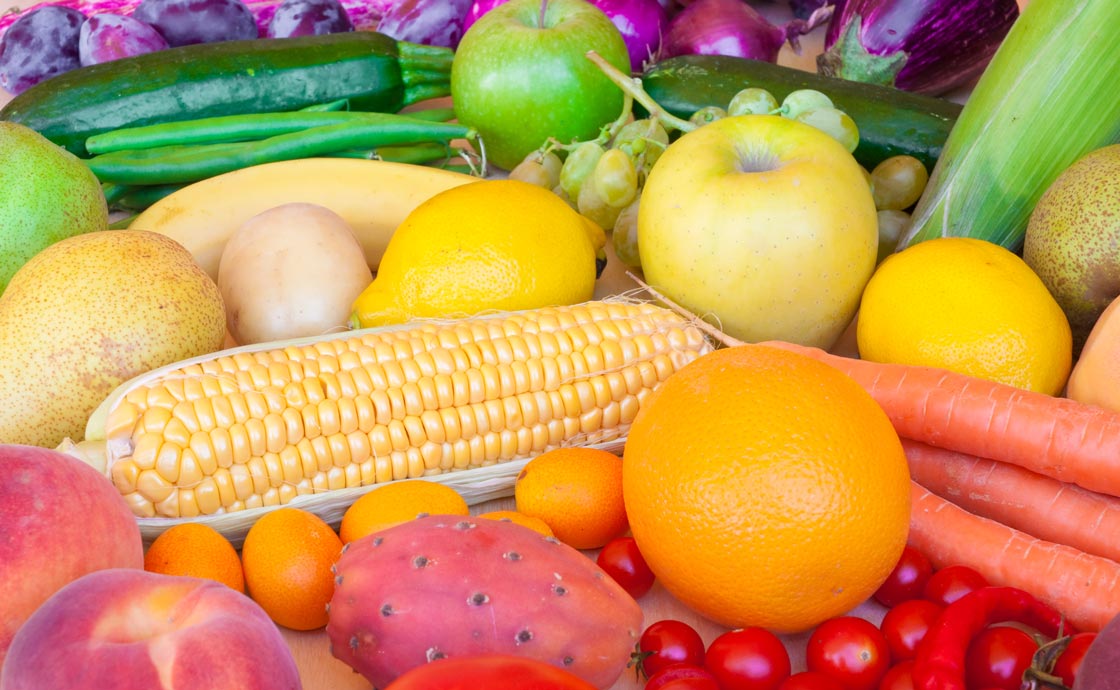Recover from injury faster with these healing foods
- Overview
How your body reacts to injury
Any injury produces inflammation. Although this is a crucial part of the natural healing process, it provides a big challenge for your immune system, which is heavily dependent on lots of nutrients, vitamins and minerals to provide effective protection.
When injured, the body stimulates the immune system to start a complex chain of reactions to begin the healing process. Specialist immune cells travel to the site of injury, with some engulfing and destroying infection/bacteria and others isolating the affected area. Healthy cells near the injury also become more active, using extra oxygen and energy to rebuild the damaged tissue. So good nutrition is essential.
Your food choices can either help or actively inhibit a speedy recovery, so read on to find out how you can help yourself:
How your diet can help
1. Boost your friendly gut flora
Did you know approximately 70% of your immune system is located in the beneficial bacteria (flora) in your gut? You can actively help yourself heal more efficiently by ensuring good levels are maintained, so they can continue to protect you by producing white blood cells and vitamin K for effective wound healing.
Ensure a regular supply of foods that contain:
Prebiotics (a good source of fuel for this flora)
Found in: garlic, onions, jerusalem artichokes
Fermented foods containing live cultures
Found in: sauerkraut (great added to salads), plain bio yoghurt, chickpeas
High-fibre foods
Such as: oats, flaxseed, barley and apples.
2. Keep up your vitamin D levels
Vitamin D is a hormone that helps regulate a variety of crucial health processes in the body – regulating our friendly gut flora is one of its key roles. Our bodies can produce vitamin D but need regular sources of sunlight to do so. Having a lack of sunlight for much of the year, many Brits struggle to maintain adequate vitamin D.
Ask your GP to test your vitamin D levels. There are limited dietary sources, so if your levels are found to be low your GP may recommend a high quality supplement (liquid versions tend to be better absorbed). Or seek advice from a qualified Nutritional Therapist to advise on the most effective evidence-based supplements.
Found in: oily fish and egg yolks
3. Top up on essential fatty acids
Omega 3s provide well-evidenced natural anti-inflammatory properties. Reducing consumption of dairy and red meat can also help mediate inflammation as these foods are rich in arachidonic acid – which at high levels has been found to increase inflammation.
Found in: oily fish, avocados, nuts and seeds, and green leafy vegetables
4. Cut down on sugar
Sugary foods and drinks promote inflammation – as blood sugar levels increase, so do inflammatory factors. Sugar also depletes levels of key immune vitamins such as vitamin C and zinc. So if you tend to reach for sugary snacks, choose instead protein-based snacks.
Sugar alternatives: oat cakes with tuna or ½ avocado with hummus (protein doesn’t spike blood sugar levels).
5. Eat your greens
Packing your diet full of green leafy vegetables is another way to help yourself. Many greens contain vitamin C, vitamin E and zinc – all potent antioxidants which help inhibit inflammation and also reduce levels of free radicals (toxic waste products which are produced where inflammation is present).
Good sources: brocolli, spinach, cauliflower, brussel sprouts, cabbage and kale and green herbs such as mint and parsley

6. In fact, eat every colour
The vibrant colours found in fruit and vegetables are due to their vitamin and mineral content, so including a wide range of naturally colourful fruit and vegetables in your diet ensures you’re receiving a good supply.
Red, yellow and orange colours found in peppers, tomatoes, apricots and squash are good sources of beta-carotenes (which we convert to vitamin A). Flavonoids (potent antioxidants) and vitamin C are found in dark-skinned berries (especially wild blueberries and elderberries) citrus fruits and kiwis. Selenium-rich foods such as brazil nuts help decrease inflammatory prostaglandins and decrease stress factors in the body.
7. Eat protein for recovery
We are physically built of protein and are dependent on this for repairing and replacing damaged and worn-out cells, so ensure every meal includes easily digestible sources.
Good sources: fish, eggs, poultry (free-range if possible for better quality protein and lower levels of saturated fat) oats, brown rice, beans, lentils and quinoa.
8. Watch the wheat
It can be easy to consume too much wheat in a typical day. As well as gluten being a hard to digest protein, wheat also contains lectins which can help stimulate inflammation. Try naturally gluten-free grains as an alternative.
Wheat alternatives: quinoa, buckwheat, amaranth and millet
And finally…
Some well-evidenced anti-inflammatories to get into your diet are:
- Fresh coconut (raw chunks, coconut water and coconut butter)
- Turmeric, which can be added to soups, stews, smoothies and when cooking grains/vegetables)
- Ginger (wash but don’t peel when using, otherwise you’ll lose some of its benefits).
Last updated Monday 25 April 2022
First published on Tuesday 19 January 2016

